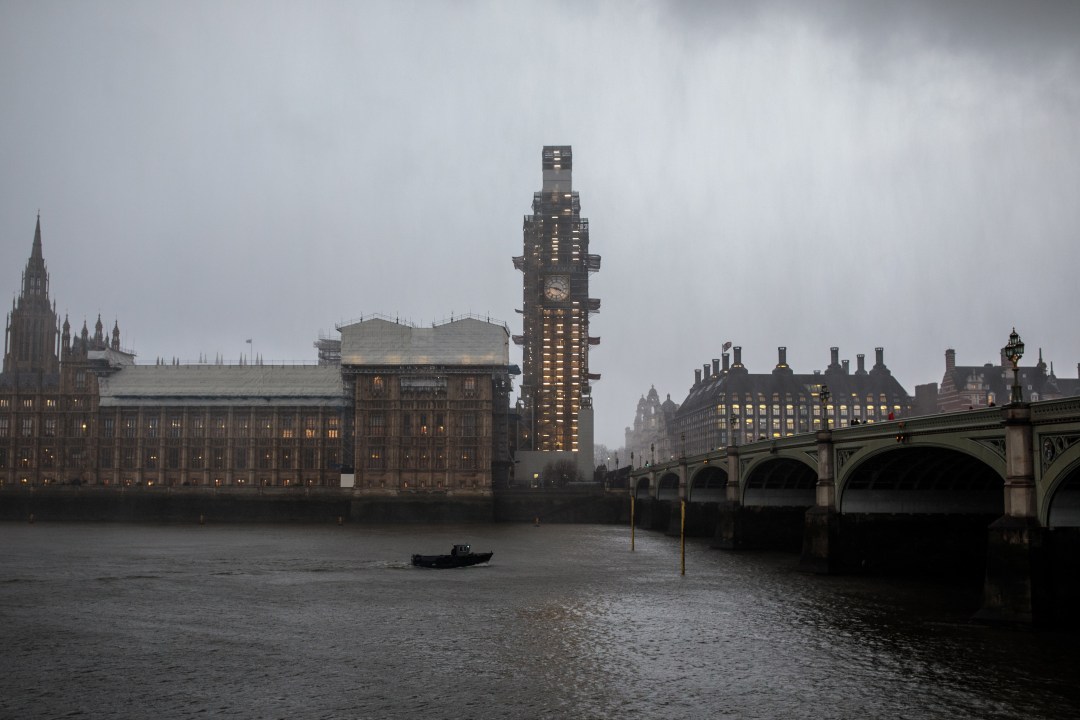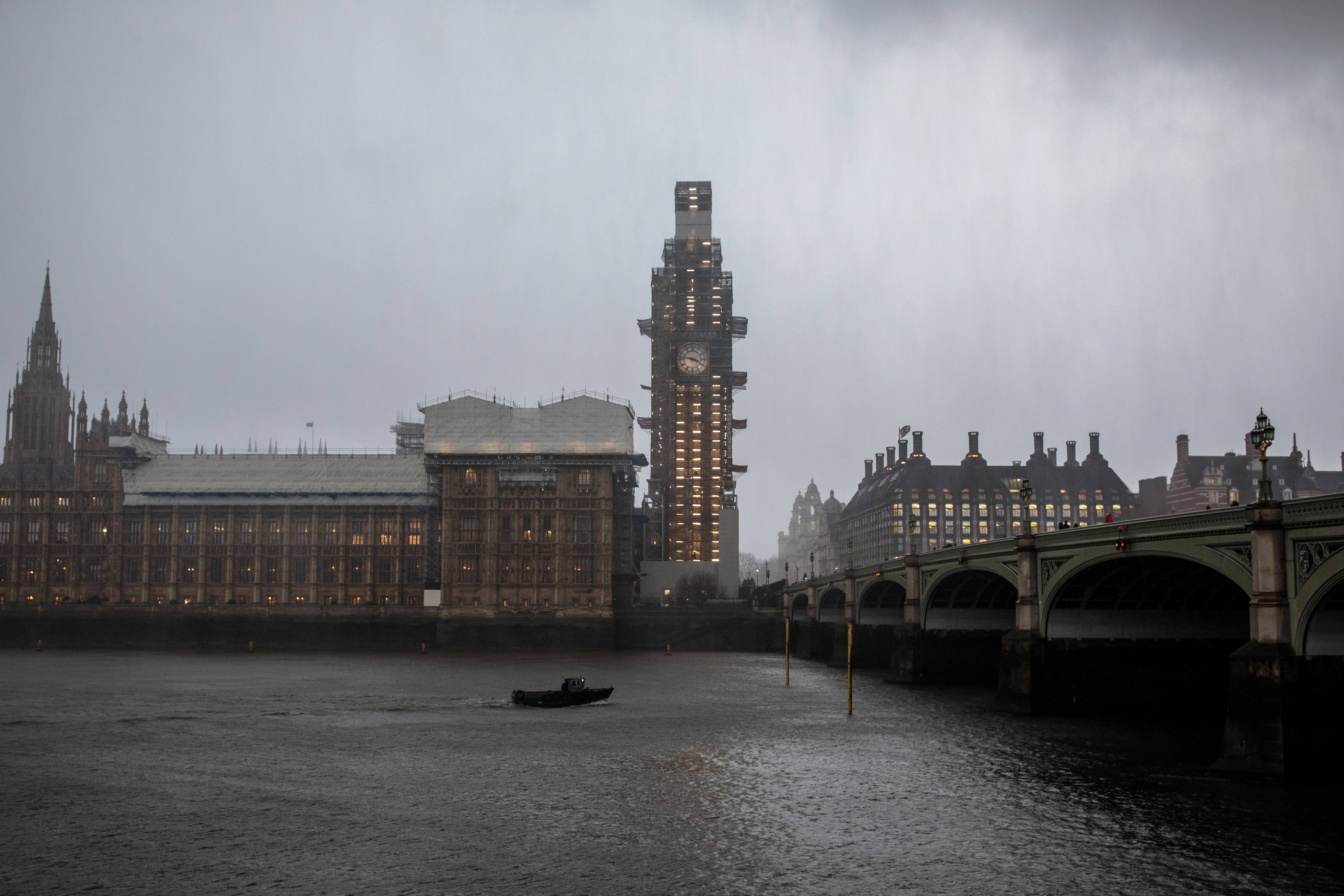MPs who aren’t in the process of defecting to the Liberal Democrats are using their conference recess to phone around their colleagues canvassing for the next Commons Speaker. Lindsay Hoyle is, according to YouGov, the favourite to win, but Harriet Harman and Chris Bryant are also running strong campaigns, along with Meg Hillier. Then there are the Tory candidates: Eleanor Laing, Sir Henry Bellingham, Shailesh Vara and Sir Edward Leigh.
All of them are promising to stand up for parliament, albeit in rather different ways. Leigh, for instance, promises to ‘seek by my conduct and dress to submerge my personality into the office and keep business flowing’ (which if nothing else is an interesting choice of verbs from an MP who likes to start every day with a swim in the Serpentine). Harman argues that she’ll ensure women’s voices are heard properly, and that she might break up some of the traditions in the Commons whereby you are called to speak in a debate in order of seniority, which she feels doesn’t respect the outside experience new MPs may bring to the House. Some of the candidates, like Leigh, want to move away from the John Bercow era, in which the office of Speaker became more political. Others are quick to praise the way the outgoing Speaker handled the tumultuous Brexit debates.
But one thing all of them will have to work out is how to put parliament back together after these past few years. It has ended up in an almighty, confused mess as a result of Brexit, and it needs a new Speaker to fix that.
With typical levels of humility, Bercow styled himself as the parliamentary People’s Princess when he announced he was retiring, telling MPs he had been ‘the backbenchers’ backstop’. He has indeed done a lot to empower parliament against the executive in his tenure. In the first few years, his reforms often involved him using conventions that had fallen by the wayside under previous speakers, such as granting many more urgent questions in the Commons. This meant ministers were regularly summoned to the Chamber to explain themselves. He also encouraged a more family-friendly parliament, with the introduction of a crèche for children of those working in the Commons, and proxy voting for new parents. For a few years, the government saw him as a bit of a pain, which was as it should be.
But as Brexit became an event bigger crisis in British politics, Bercow stopped worrying about being seen as impartial. Indeed, Labour MPs such as Margaret Beckett said publicly that they wanted to keep him despite heavy criticism of his handling of bullying in the Commons because they needed him to help them fight the government on Brexit. He tore up Commons rules in order to give MPs more power. When backbenchers seized control of the Order Paper two weeks ago, they did so because Bercow had changed the working of an emergency debate under Standing Order 24, allowing them to vote on a substantive motion.
Our politics doesn’t have a separation of powers between executive and legislature. It doesn’t have a legislature that is in control of what comes before it and how long laws are examined. The government holds that power. Bercow tipped the balance in favour of the legislature, which is something many parliamentarians and those who want better government are in favour of. A lot of the mistakes made by governments happen because parliament is too supine or ignorant to stop them. The problem is that these changes came about randomly, rather than as a result of a considered debate about the balance of powers between backbenchers and government. Even those of us who are in favour of a more active and powerful parliament should realise that change on the hoof like this isn’t a good thing.
It wasn’t just Bercow who was shaking up the Commons without much consideration for the consequences. At one stage of the Brexit chaos, MPs were mulling handing power for the negotiations from the government to the Liaison Committee, the group of Select Committee chairs. At the time the Committee’s chair Dr Sarah Wollaston pointed out that it didn’t draft legislation, and that the proposal would be blocked. If it hadn’t, it would have represented a huge shift in the way British politics worked, passed to deal with one issue and once again without regard for what this might mean for any government trying to get its manifesto implemented.
I personally think select committees should be allowed to draft and scrutinise legislation: they’re made up of the MPs who tend to understand the subject area the best, and the shift in power from the government claiming to be the only source of wisdom to the legislature also being able to influence things would be good for policy making. But to do this, committees would need to be properly-resourced. As I say in my book Why We Get the Wrong Politicians, they would need to work like rivals to government departments, with proper legal support and training for members. And it would be a big change to the way politics worked, which should be properly debated, rather than passed in a late-night vote by MPs with an interest in one issue only.
If select committees did get these powers, it would encourage MPs to take their role as scrutineers more seriously. They would see being a backbencher as a career path, not as a stopping-place on the way to government, or where you end up once you’ve been sacked. Bercow did make Parliament more important, but MPs still don’t know what they are voting on a lot of the time, still don’t see the value in properly reading legislation to ensure they’re not voting for something daft, and still see voting against something as a political act of rebellion, rather than part of their job in stopping the government, even if it is led by their own party, from making a terrible mistake. A serious Speaker would want to change that. Even if they were unable to get the structural changes they wanted, Bercow’s replacement could still introduce proper training for new MPs so they understand legislation (currently they are elected, shown around parliament and given inductions on how the place vaguely works, and then asked to get on with voting). These little things would all improve the culture.
Cultures are far more pernicious than structures, as we saw with the reports into how the Commons has handled bullying and harassment. Bercow was one of those considered a roadblock to proper changes to a culture in which staff felt they couldn’t complain about abominable behaviour from MPs or other officials. Now he is going, the next Speaker needs to work out how to fix the Commons so it is a decent place to work. And this will involve making life as uncomfortable for MPs as Bercow often made it for ministers. The White report found that only 34 out of 650 MPs had attended training designed to improve their behaviour. It is unlikely that many of those 34 MPs were the ones who most needed the training: those who think they are least likely to need to learn are often the ones most in need of such advice. White suggested that this training be mandatory, and the next Speaker should take up that recommendation, even if it irks certain backbenchers.
Brexit has shown up our political process to be flawed. But they’ve been flawed for domestic policy for years, too. The next Speaker needs to be ready to make changes to all of that in a thoughtful way, otherwise we’ll just end up with more chaos and less faith in parliament.








Comments